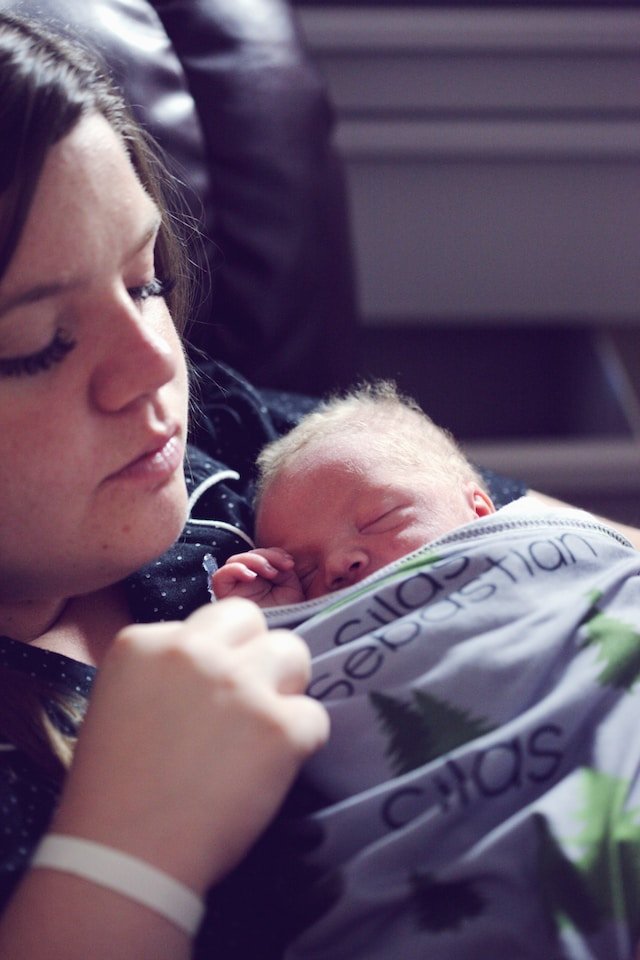Perinatal OCD: Navigating Scary Thoughts
Perinatal OCD is a specific type of obsessive-compulsive disorder that affects women during pregnancy or in the postpartum period.
While it is normal for new mothers to experience some anxiety and worries, perinatal OCD goes beyond typical concerns and can significantly impact a mother's daily life.
In this blog, we will explore perinatal OCD symptoms and I will provide practical coping strategies.
Understanding Perinatal OCD Symptoms
Perinatal OCD symptoms can manifest in a variety of ways, and they often center around fears and obsessions related to the baby's well-being.
It is essential to recognize these symptoms early to seek appropriate help and support. Some common perinatal OCD symptoms include:
1. Intrusive Thoughts
Mothers with perinatal OCD may experience distressing and intrusive thoughts about harming their baby, even though they have no intention of acting on these thoughts.
These thoughts are known as "harm obsessions" and are a hallmark symptom of the condition. It's crucial to understand that these thoughts are not a reflection of one's true intentions or character.
2. Excessive Worry
Excessive and irrational worry about the baby's safety, health, or hygiene is a hallmark symptom. This constant fear can lead to compulsive behaviors to alleviate anxiety.
For example, a mother may obsessively check the baby's crib to ensure it's safe, or she might wash her hands repeatedly for fear of contaminating the baby.
3. Ritualistic Behaviors
Compulsive rituals are common coping mechanisms. These can include excessive handwashing, checking the baby's breathing, or arranging baby items in a specific way. These rituals are performed to reduce the anxiety triggered by obsessive thoughts.
4. Avoidance
Some mothers may avoid situations or activities they fear may harm the baby, such as cooking, using stairs, or being alone with the infant. Avoidance behaviors can significantly limit a mother's ability to function and enjoy motherhood.
5. Emotional Distress
Perinatal OCD often causes significant emotional distress, including guilt, shame, and fear of being labeled a "bad mother." It's essential to remember that perinatal OCD is a treatable mental health condition, and seeking help is a sign of strength, not weakness.
Coping Strategies for Perinatal OCD
Managing perinatal OCD requires a multi-faceted approach that combines professional help, self-care, and support from loved ones. Here are some coping strategies to consider:
1. Seek Professional Help
The first and most crucial step is to consult a mental health professional who specializes in perinatal mood disorders.
Therapy, such as cognitive-behavioral therapy (CBT) or exposure and response prevention (ERP), can be highly effective in managing perinatal OCD.
These therapeutic approaches help individuals identify and challenge irrational thoughts and develop healthier coping strategies.
2. Build a Support System
Share your struggles with trusted friends and family members. Having a support system in place can provide emotional relief and practical assistance when needed.
Don't hesitate to lean on your loved ones for help with daily tasks or childcare responsibilities.
3. Medication Options
In some cases, medication prescribed by a healthcare provider may be necessary. Selective serotonin reuptake inhibitors (SSRIs) can help alleviate symptoms, but their use during pregnancy and breastfeeding should be discussed with a healthcare provider.
Medication should be considered when the benefits outweigh the potential risks.
4. Educate Yourself
Understanding perinatal OCD and its symptoms can help demystify the condition and reduce feelings of shame or guilt. Knowledge empowers you to recognize when you need help and to advocate for yourself in seeking appropriate treatment.
5. Practice Self-Care
Prioritize self-care by getting adequate sleep, eating a balanced diet, and engaging in relaxation techniques such as mindfulness or deep breathing exercises.
Taking care of your physical and mental well-being is essential to managing perinatal OCD.
6. Challenge Negative Thoughts
Work with a therapist to identify and challenge the irrational thoughts and beliefs driving your OCD symptoms.
CBT techniques can be highly effective in this regard. Learning to differentiate between irrational fears and reality is a key step in managing the condition.
7. Set Realistic Expectations
Accept that perfection is not attainable, and no one is a perfect parent. Allow yourself to make mistakes and learn from them. Parenting is a learning journey, and it's okay to seek help and support along the way.
8. Create a Structured Routine
Establishing a daily routine can help reduce uncertainty and anxiety. Having a structured schedule can provide comfort and predictability for both you and your baby. Knowing what to expect each day can help alleviate some of the stress associated with perinatal OCD.
9. Support Groups
Joining a perinatal OCD support group can connect you with others who are going through similar experiences.
Sharing your journey and hearing from others can provide validation and a sense of community. These groups can be both in-person and online, making it accessible for various needs and preferences.
10. Monitor Your Progress
Keep track of your symptoms and progress throughout treatment. Celebrate small victories and be patient with yourself during setbacks. Recovery from perinatal OCD is a process, and it's essential to recognize and acknowledge your efforts along the way.
Takeaways:
Perinatal OCD can be a challenging condition, but with the right support and coping strategies, you can effectively manage your symptoms.
Remember that seeking help is a sign of strength, and there are resources available to guide you through this journey.
With the right treatment and support, you can overcome perinatal OCD and enjoy the joys of motherhood to the fullest.
With love and solidarity,





